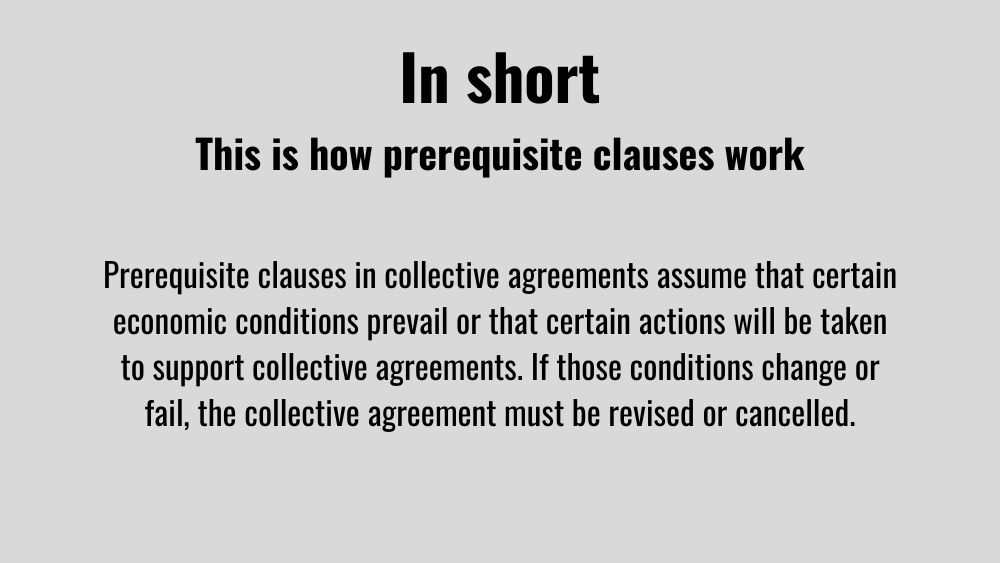It cannot be accepted that workers are locked into a four-year collective agreement with very modest wage increases without clear prerequisite clauses built into it. The Union Alliance’s acceptance of moderate wage increases stands and falls with the rapid decline in key interest rates and inflation. If those goals are not achieved, there must be built-in conditions in collective agreements to give employees the possibility to compensate.

The Union Alliance’s objectives at the negotiating table are clear and they were presented to the Confederation of Employers (SA) immediately when negotiations began in earnest between Christmas and New Year. The goals are for inflation to decline and for interest rates to fall. SA has publicly and repeatedly expressed its support for those goals. With these goals in mind, the Union Alliance agreed to negotiate moderate wage increases.
On February 6, the parties agreed on the main lines of wage increases during the four-year contract period. The minimum increase would be 23,750 ISK each year, and other wages increase by 3.25% in the first three years and 3.50% in the last year. Wage increases in the first year range from 3.25 to 5.9%, the highest for the lowest-paid groups.
According to the latest measurement by the National Statistics Office inflation in Iceland is however 6.7%, so it is clear that these wage increases are not sufficient with current inflation. Therefore the goal of reduced inflation and key interest rates must be achieved. .
But it is not enough to just trust, there must be safety valves that ensure workers are not left behind with low wage increases in high inflation and high-interest rates. It must also be ensured that the government keeps the promises it will make in relation to the collective agreement.
The prerequisite conditions originally put forward by the Union Alliance were as follows:
- That inflation will be down to 4% in February 2025. It is currently 6.7%. This is well within the range assumed by the Central Bank’s current economic forecast.
- That the central bank’s key interest rate will be reduced to 6.75% in February 2025. It is currently 9.25%. All predictions assume that this will happen.
To contribute to the achievement of these goals, the Union Alliance has made concessions regarding wage increases, and it has also agreed to SA’s demand that the increases be in the form of mixed percentage and flat wage increases. The absolute minimum is that SA reciprocates this by agreeing to prerequisite clauses in the contract that address inflation and interest rates.
The Union Alliance’s initial offer was as follows:
- If inflation is higher than 4% on February 1, 2025, wages will increase immediately.
- If key interest rates are higher than 6.75% on February 1, 2025, the collective agreement will be void.
- If the government does not keep its promises about its involvement, the collective agreement will be void.
The Union Alliance then submitted a draft of the amended prerequisite clauses again last February 6, to accommodate SA. It was suggested that the contracting parties set common goals for inflation and interest rates. Prerequisite clauses would be activated if those goals were not met.
Those criteria would be:
- Increasing flat wage increases if goals are not met. The contract will be void if the target is far exceeded and inflation is 7 percent or higher.
- The collective agreement must be terminated if the Central Bank’s key interest rates have not decreased by 2.5 percentage points by the end of May 2025.
The Union Alliance therefore accommodated SA by relaxing its initial proposals regarding the key interest rate, so that the time frame to be worked with would be four months longer than originally expected. The Union Alliance then offered to set joint goals regarding inflation. These assumptions are completely within the criteria all analysts assume in their forecasts for economic development in the coming years, including the Central Bank itself.
SA responded by submitting their draft of prerequisite clauses two days later, on 8 February. In them, there were no numerical goals, and that it was to be put in the hands of a committee to assess whether the conditions of the agreement had been maintained. SA also insisted that both parties had to agree to the termination of the collective agreement.
The Union Alliance bearings are that in order to be able to agree on a four-year collective agreement where workers accept very modest wage increases there must be strong prerequisite clauses. It is not possible to lock workers into long contracts if the goals of decreasing inflation and falling interest rates do not materialize.
The prerequisite clauses must be clear and numbered, and there must be an automatic response if goals are not met. If the situation is far from the goals it must be possible to terminate the contract.
The Union Alliance believes, just like all major analysts, that it is very unlikely that the prerequisite clauses will have to be activated. Rather they are thought of as insurance as a last resort.
SA’s willingness to negotiate in this regard has proven to be low. For that reason, the Union Alliance declared the negotiations ineffective last Friday. If SA agrees to simple and clear prerequisite clauses such as those proposed by the Union Alliance nothing should stand in the way of making collective agreements that will contribute to the reduction of inflation and interest rates, for the good of all.